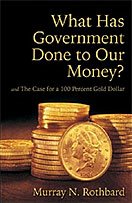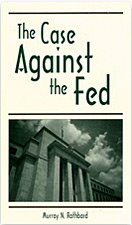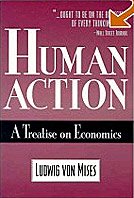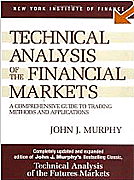John Browne: Gold might be shaking off central bank shackles
A Toast to Gold Power
By John Browne
Pittsburgh Tribune-Review
Sunday, April 13, 2008
In 2003 a bottle of 1785 Chateau d'Yquem once belonging to Thomas Jefferson was sold in London for $56,588, making it the most expensive bottle of white wine and earning d'Yquem the title of "liquid gold." What more fitting wine for a toast to the alluring yellow metal that has fascinated humankind for most of recorded time?
Why is it now an appropriate time to drink to gold? Because gold is possibly near to shaking off a sustained and coordinated attack on its monetary credibility by some of the world's most powerful central banks. Investors could win back an asset that offers protection against the financial abuse of governments.
Most wines are priced as commodities on the basis of quality, supply and demand. Others, undrinkable, such as the 200-year-old d'Yquem, are sold as collectors items or investments.
Interestingly, the d'Yquem did not command the highest-ever price. That fell to a bottle of 1787 Chateau Margeaux, also once owned by Jefferson. It had been insured and was broken in a table accident; the insurer paid $225,000!
This episode illustrates another key value of gold -- insurance against catastrophe.
Employed as an industrial metal in jewelry, dentistry, sophisticated electronics, and space hardware, gold is no ordinary commodity. It has a high value-to-weight ratio, making it one of the oldest, most trusted forms of money. It cannot be produced; it must be found and mined. This rarity value gives it credibility as an honest store of wealth.
For centuries the "honesty" of gold has been the bane of financially dishonest governments, which have even diluted the gold content of their coins to deceive holders as to their face value.
Around 1670 London goldsmiths introduced notes as certificates of their clients' ownership of gold. Gradually, the notes were used by goldsmiths' clients to transact commercial business without incurring the expensive and risky transportation of the underlying gold. Eventually these notes became widely accepted, becoming the first effective paper currency.
Soon rulers learned the key advantage of paper money -- leverage! Progressively, and often in return for financing wars, institutions called "banks" were permitted to issue bankers' (shop) notes, each promising redemption in gold, but in multiples of the physical amounts of customers' gold they held on deposit.
Soon national or central banks got in on the act. Economies grew rapidly, based on this new, miraculous "liquidity" of the new "paper" gold standard, a downgrade of the full gold "bullion" standard.
In World War I major governments dropped the gold standard, issuing vast amounts of paper money and debt. Yet post-war economies declined, calling paper money into question.
Meeting in Rome, the Great Powers saw a return to the gold standard as too recessive; what was needed was a paper "reserve" currency, redeemable in gold. Great Britain's currency, Sterling, was selected.
All worked well until after the Great Crash of 1929, when paper money lost credibility. The collapse of the Creditanstalt and a run on Austrian and German banks led to a rush to convert Sterling into gold. Soon the British gold "window" closed. In the absence of credible international money, world trade dropped and recession morphed into depression.
World War II revived economic activity. In July 1944 the Great Powers, nervous that the post-war recession of the early 1920s would be repeated, met at Breton Woods, New Hampshire, to devise a post-war currency system. This time the U.S. dollar was selected as the reserve currency, but convertible into gold only by central banks (the gold "exchange" standard).
All went well until Vietnam. Rather than finance that war by conventional taxation and borrowing, the U.S. government chose inflation. Because the dollar was the world's reserve currency, other nations initially tolerated this dollar inflation. However, some, such as France, sought conversion of their massive U.S. dollar surpluses into gold; President Nixon then closed the gold exchange window.
This unleashed a series of competitive devaluations. The free-market price of gold rose to levels which caused embarrassment to governments that were inflating and debasing their currencies.
It was recognized that the bulk of gold production was used by industry as a commodity and that the portion used for investment was some 500 metric tons a year. Led by America, major governments decided to de-monetize or discredit gold as an investment.
Covertly, the Central Bank Gold Agreement was concluded; under it, certain central banks agreed to pool some 500 tons of gold a year for coordinated market sales via the International Monetary Fund (IMF). While protesting the opposite, the IMF would intervene to maximize price volatility and discourage investment.
So what are the main influences on the price of gold?
Essentially, investors should note that gold is not priced in a free market and is volatile.
Most gold is likely to continue trading as a commodity, with normal speculation. In recession, gold should experience downward pressure.
At the margin, the investment value of gold has two aspects: "store of value" against inflation and "insurance" against catastrophe, such as a systemic financial meltdown or war.
Two weeks ago evidence of looming recession and worldwide contraction mounted, and gold experienced downward commodity price movement.
Simultaneously, the Federal Reserve's March 17 action was seen as averting a financial meltdown -- and "insurance" selling pressure was exerted on gold.
Furthermore, benign government inflation figures -- still believed by some -- led to "store of value" selling.
Acting covertly, the IMF probably moved to exacerbate market uncertainty. Gold dropped by over 10 percent by March 28.
Recent congressional questions posed to the Fed chairman reflected worrying times with recession, serious Main Street inflation and continued risk of financial chaos.
In worsening circumstances, gold's next upsurge could discourage central banks from continuing to squander their citizens' gold to manipulate the price downward. This would allow for a latent, follow-though surge in gold's free-market price.
Gold is unique. No government can challenge its integrity successfully, over time.
The taste of d'Yquem is exquisite. Alas, it will never be as good as gold.
---
John Browne, a financial analyst and former member of Britain's Parliament, is a financial and political columnist for the Tribune-Review. He is a frequent commentator on CNBC's "Kudlow & Company." E-mail him at: johndbrowne@yahoo.com.
---
Why is it now an appropriate time to drink to gold? Because gold is possibly near to shaking off a sustained and coordinated attack on its monetary credibility by some of the world's most powerful central banks. Investors could win back an asset that offers protection against the financial abuse of governments.
Most wines are priced as commodities on the basis of quality, supply and demand. Others, undrinkable, such as the 200-year-old d'Yquem, are sold as collectors items or investments.
Interestingly, the d'Yquem did not command the highest-ever price. That fell to a bottle of 1787 Chateau Margeaux, also once owned by Jefferson. It had been insured and was broken in a table accident; the insurer paid $225,000!
This episode illustrates another key value of gold -- insurance against catastrophe.
Employed as an industrial metal in jewelry, dentistry, sophisticated electronics, and space hardware, gold is no ordinary commodity. It has a high value-to-weight ratio, making it one of the oldest, most trusted forms of money. It cannot be produced; it must be found and mined. This rarity value gives it credibility as an honest store of wealth.
For centuries the "honesty" of gold has been the bane of financially dishonest governments, which have even diluted the gold content of their coins to deceive holders as to their face value.
Around 1670 London goldsmiths introduced notes as certificates of their clients' ownership of gold. Gradually, the notes were used by goldsmiths' clients to transact commercial business without incurring the expensive and risky transportation of the underlying gold. Eventually these notes became widely accepted, becoming the first effective paper currency.
Soon rulers learned the key advantage of paper money -- leverage! Progressively, and often in return for financing wars, institutions called "banks" were permitted to issue bankers' (shop) notes, each promising redemption in gold, but in multiples of the physical amounts of customers' gold they held on deposit.
Soon national or central banks got in on the act. Economies grew rapidly, based on this new, miraculous "liquidity" of the new "paper" gold standard, a downgrade of the full gold "bullion" standard.
In World War I major governments dropped the gold standard, issuing vast amounts of paper money and debt. Yet post-war economies declined, calling paper money into question.
Meeting in Rome, the Great Powers saw a return to the gold standard as too recessive; what was needed was a paper "reserve" currency, redeemable in gold. Great Britain's currency, Sterling, was selected.
All worked well until after the Great Crash of 1929, when paper money lost credibility. The collapse of the Creditanstalt and a run on Austrian and German banks led to a rush to convert Sterling into gold. Soon the British gold "window" closed. In the absence of credible international money, world trade dropped and recession morphed into depression.
World War II revived economic activity. In July 1944 the Great Powers, nervous that the post-war recession of the early 1920s would be repeated, met at Breton Woods, New Hampshire, to devise a post-war currency system. This time the U.S. dollar was selected as the reserve currency, but convertible into gold only by central banks (the gold "exchange" standard).
All went well until Vietnam. Rather than finance that war by conventional taxation and borrowing, the U.S. government chose inflation. Because the dollar was the world's reserve currency, other nations initially tolerated this dollar inflation. However, some, such as France, sought conversion of their massive U.S. dollar surpluses into gold; President Nixon then closed the gold exchange window.
This unleashed a series of competitive devaluations. The free-market price of gold rose to levels which caused embarrassment to governments that were inflating and debasing their currencies.
It was recognized that the bulk of gold production was used by industry as a commodity and that the portion used for investment was some 500 metric tons a year. Led by America, major governments decided to de-monetize or discredit gold as an investment.
Covertly, the Central Bank Gold Agreement was concluded; under it, certain central banks agreed to pool some 500 tons of gold a year for coordinated market sales via the International Monetary Fund (IMF). While protesting the opposite, the IMF would intervene to maximize price volatility and discourage investment.
So what are the main influences on the price of gold?
Essentially, investors should note that gold is not priced in a free market and is volatile.
Most gold is likely to continue trading as a commodity, with normal speculation. In recession, gold should experience downward pressure.
At the margin, the investment value of gold has two aspects: "store of value" against inflation and "insurance" against catastrophe, such as a systemic financial meltdown or war.
Two weeks ago evidence of looming recession and worldwide contraction mounted, and gold experienced downward commodity price movement.
Simultaneously, the Federal Reserve's March 17 action was seen as averting a financial meltdown -- and "insurance" selling pressure was exerted on gold.
Furthermore, benign government inflation figures -- still believed by some -- led to "store of value" selling.
Acting covertly, the IMF probably moved to exacerbate market uncertainty. Gold dropped by over 10 percent by March 28.
Recent congressional questions posed to the Fed chairman reflected worrying times with recession, serious Main Street inflation and continued risk of financial chaos.
In worsening circumstances, gold's next upsurge could discourage central banks from continuing to squander their citizens' gold to manipulate the price downward. This would allow for a latent, follow-though surge in gold's free-market price.
Gold is unique. No government can challenge its integrity successfully, over time.
The taste of d'Yquem is exquisite. Alas, it will never be as good as gold.
---
John Browne, a financial analyst and former member of Britain's Parliament, is a financial and political columnist for the Tribune-Review. He is a frequent commentator on CNBC's "Kudlow & Company." E-mail him at: johndbrowne@yahoo.com.
---















![[Most Recent Quotes from www.kitco.com] [Most Recent Quotes from www.kitco.com]](http://www.kitco.com/images/live/t24_au_en_usoz_6.gif)
![[Most Recent Quotes from www.kitco.com] [Most Recent Quotes from www.kitco.com]](http://www.kitco.com/images/live/au_go_0030_ny.gif)
![[Most Recent Quotes from www.kitco.com] [Most Recent Quotes from www.kitco.com]](http://www.kitco.com/images/live/au_go_0365_ny.gif)
![[Most Recent Quotes from www.kitco.com] [Most Recent Quotes from www.kitco.com]](http://kitconet.com/charts/metals/silver/t24_ag_en_usoz_4.gif)

















0 ΣΧΟΛΙΑ (COMMENTS):
Post a Comment
<< Home